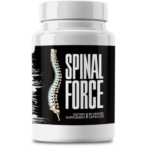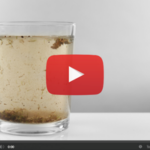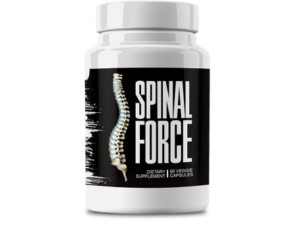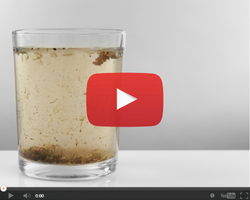This Village-Made Chinese Pain Reliever Eliminates Back And Joint Pain!
Why Is My Knee Swollen But Not Painful?

Why Is My Knee Swollen But Not Painful? Here’s What You Should Know
Noticing your knee is swollen but doesn't hurt can be puzzling. We usually associate swelling with pain, right? But sometimes, our joints have other ideas. The good news? It's not always cause for alarm—but it's definitely worth understanding what might be going on.
In this guide, we'll walk through the most common reasons for painless knee swelling, when you should consider seeing a doctor, and simple ways to care for your knee at home. Whether it's a bit of extra fluid, early arthritis, or something else entirely, being informed helps you make the best decisions for your joint health.
What Your Pain-Free Swollen Knee Might Be Telling You
That puffiness in your knee could be your body's way of waving a little red flag. Unlike sudden injuries that scream for attention with pain, some joint issues whisper first with swelling. It might be inflammation setting up shop, fluid deciding to stick around, or the early signs of joint changes.
Why You Shouldn't Just Ignore It
Here's the thing—even if it doesn't hurt now, that swelling could be the opening act for bigger problems. Left unchecked, fluid buildup or inflammation might lead to stiffness, less mobility, or even long-term joint issues. Catching it early? That's your best move for keeping your knees happy down the road.
Top Reasons Your Knee Might Be Swollen (But Not Hurting)
Let's break down the usual suspects behind a painless swollen knee:
When Your Knee Holds Extra Fluid (Effusion)
Sometimes called "water on the knee," this happens when your joint decides to retain extra synovial fluid. Common triggers include:
- Minor bumps or repetitive movements (think gardening or too many squats)
- The early stages of osteoarthritis
- Inflammatory conditions like gout (yes, even before the pain hits)
You might notice stiffness or a tight feeling, even if pain hasn't joined the party yet.
The Early Stages of Arthritis
Both osteoarthritis and rheumatoid arthritis can start with subtle swelling before pain becomes noticeable. It's like your knee's early warning system—pay attention now, and you might avoid bigger issues later.
Bursitis: When Your Knee's Cushions Get Irritated
Those little fluid-filled sacs (bursae) that cushion your knee? When they get irritated, they can swell up without causing much pain—especially if the inflammation is mild.
Less Common (But Important) Possibilities
While rare, sometimes a painless swollen knee points to:
- Infections like Lyme disease
- Autoimmune conditions (lupus, for example)
- Systemic issues affecting fluid balance
When Should You Actually Worry About a Swollen Knee?
Most times, this isn't an emergency—but some signs mean you should pick up the phone and call your doctor.
Red Flags That Need a Doctor's Eye
- Swelling that sticks around more than a few days
- Skin that looks red or feels warm to the touch
- Fever or other signs of infection
- Suddenly finding it hard to put weight on that leg
How Long Is Too Long to Wait?
Give it 3-5 days with home care. If the swelling hasn't budged—or if it's getting worse—it's time to get it checked out. Better safe than sorry, right?
How Doctors Figure Out What's Going On
If you do end up in the doctor's office, here's what to expect:
The Hands-On Checkup
Your doctor will likely:
- Move your knee through its range of motion
- Check for warmth or tender spots
- Ask about recent activities or minor injuries you might have forgotten
Peeking Inside With Imaging
Depending on what they find, you might need:
- X-rays to check for joint changes
- An MRI or ultrasound to look at soft tissues
The Lab Work
Sometimes a blood test or fluid sample can reveal infections, gout crystals, or markers of autoimmune conditions.
Simple Ways to Care for Your Swollen Knee at Home
If your knee is just mildly swollen and not painful, try these doctor-approved approaches:
The Classic RICE Method
- Rest: Give your knee a break from activities that might irritate it
- Ice: 15-20 minutes every few hours can work wonders
- Compression: A snug (not tight!) knee sleeve can help
- Elevation: Prop it up above heart level when you're relaxing
Over-the-Counter Helpers
NSAIDs like ibuprofen can reduce inflammation if needed—just check with your doctor first if you have other health conditions.
Keep It Moving (Gently)
Low-impact activities like swimming or cycling can maintain mobility without stressing your joint.
When Home Care Isn't Enough: Medical Options
If that swelling just won't quit, doctors have a few tricks up their sleeves:
Draining the Excess (Aspiration)
A quick procedure where they remove fluid with a needle—instant relief for seriously swollen knees.
Calming Inflammation With Injections
Corticosteroid shots can be game-changers for persistent swelling from arthritis or bursitis.
Rebuilding Strength With PT
A physical therapist can design exercises to stabilize your knee and prevent future issues.
Keeping Your Knees Happy Long-Term
Prevention is always better than treatment, so consider these habits:
Watch Your Weight
Extra pounds mean extra stress on your knees—even a little weight loss can make a big difference.
Build Strong Support
Focus on strengthening those quadriceps and hamstrings—they're your knees' best friends.
Choose Joint-Friendly Activities
Swap high-impact workouts for swimming, cycling, or elliptical training when your knees need a break.
The Bottom Line
Key Points to Remember
- Painless swelling often comes from fluid buildup, early arthritis, or mild inflammation
- Simple home care can help in many cases
- Persistent swelling deserves a doctor's attention
Your Next Steps
While a painless swollen knee usually isn't an emergency, it's your body's way of asking for attention. Listen to it! Try home care first, but don't hesitate to seek medical advice if things don't improve. After all, your knees have to carry you through life—they deserve the best care you can give them.
Have you experienced this before? What worked for you? Share your story in the comments—your experience might help someone else!








